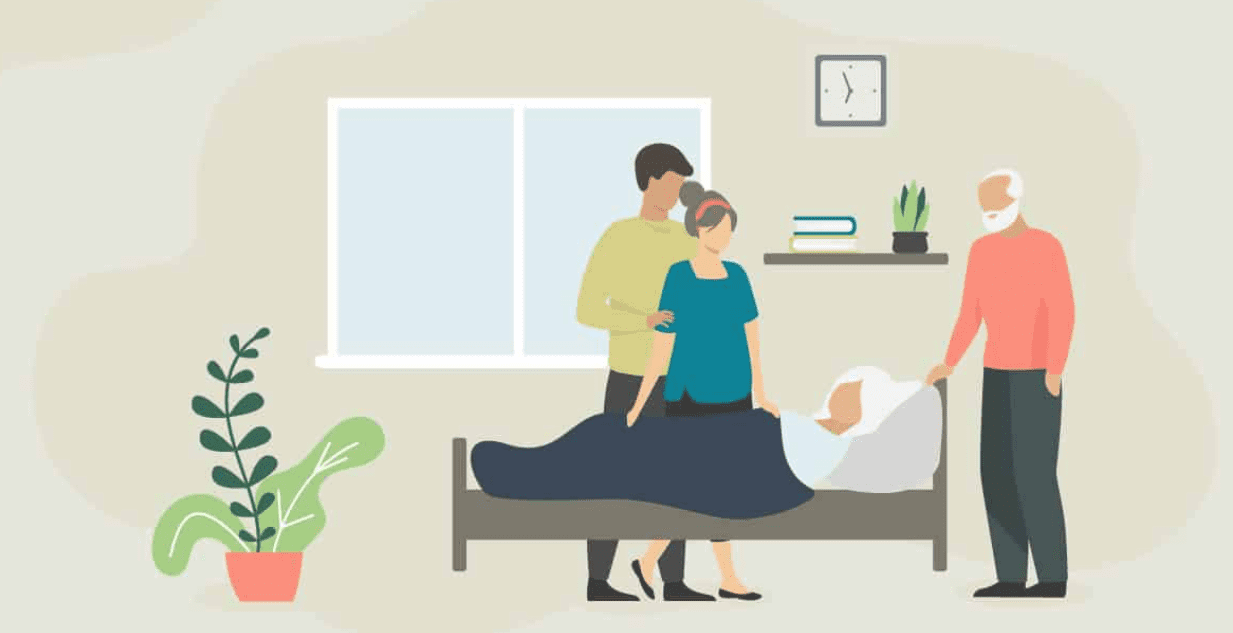When facing a life-limiting illness, patients and their families often have to make the difficult decision of choosing between hospice care at home or receiving care at an inpatient hospice facility. Both options offer compassionate, end-of-life care, but the right choice depends on the patient’s needs, preferences, and the level of medical care required. In Houston, TX, hospice care services aim to provide comfort and dignity, whether in the familiarity of home or a specialized facility. Let’s explore the benefits of hospice care at home versus inpatient hospice facilities in Houston, TX, to help families make an informed decision.
Hospice Care at Home
1. Familiar and Comfortable Environment
One of the primary advantages of hospice care at home is that patients remain in their familiar surroundings. Being in a home environment can reduce anxiety and promote emotional well-being. Patients can be surrounded by personal belongings, pets, and loved ones, which enhances their sense of peace and security.
2. Personalized and Family-Centered Care
Hospice care at home is highly personalized. A dedicated team of nurses, caregivers, and medical professionals visit the patient regularly, ensuring they receive comprehensive pain and symptom management. Family members are also encouraged to take an active role in the patient’s care, which strengthens emotional bonds.
3. Greater Flexibility and Control
At home, patients and families have more flexibility in making decisions about daily routines, meal preferences, and visitation schedules. Unlike in inpatient facilities, there are no strict visiting hours, allowing loved ones to spend as much time as they wish with the patient.
4. Cost-Effective Option
For many families, hospice care at home is a more affordable option compared to inpatient care. It eliminates the cost of room and board associated with inpatient hospice facilities in Houston, TX. Medicare, Medicaid, and private insurance often cover hospice services at home, making it financially accessible.
5. Emotional and Spiritual Comfort
Patients often find emotional and spiritual solace in being at home. The presence of loved ones, religious rituals, and familiar surroundings provide a sense of closure and fulfillment. Many hospice care providers also offer spiritual counseling to help families and patients navigate the emotional challenges of end-of-life care.
Inpatient Hospice Facilities
1. Access to 24/7 Medical Supervision
For patients with complex medical needs, inpatient hospice facilities in Houston, TX, provide round-the-clock medical supervision. These facilities have skilled nurses and physicians available 24/7 to manage pain, administer medications, and handle emergencies. This level of care is especially beneficial for patients experiencing severe symptoms.
2. Specialized Equipment and Resources
Inpatient hospice facilities are equipped with medical beds, oxygen therapy, and other specialized equipment that may not be available at home. This ensures that patients receive the highest level of medical care and comfort.
3. Reduced Caregiver Burden
Caring for a terminally ill loved one can be physically and emotionally exhausting. Inpatient facilities relieve the burden on family caregivers, allowing them to focus on spending quality time with their loved one without the stress of medical responsibilities.
4. Professional Emotional and Psychological Support
Hospice facilities often provide grief counseling, therapy, and emotional support to both patients and their families. Professional counselors and chaplains are available to address emotional and spiritual needs, ensuring holistic care.
5. Ideal for Crisis or Short-Term Respite Care
Some patients may require short-term inpatient care during a health crisis, such as severe pain or breathing difficulties. Inpatient hospice care allows medical teams to stabilize symptoms before the patient transitions back to home care, if possible. It also provides respite care for family caregivers who need temporary relief from caregiving duties.
Making the Right Choice
Choosing between hospice care at home and an inpatient facility depends on several factors, including the patient’s medical condition, personal preferences, and family circumstances. Here are some key considerations:
- Choose home hospice care if: The patient prefers to stay in a familiar environment, has a strong family support system, and does not require intensive medical interventions.
- Choose an inpatient facility if: The patient requires 24/7 medical attention, has unmanaged symptoms, or if family caregivers are unable to meet the patient’s care needs.
Both hospice care at home and inpatient hospice facilities in Houston, TX, provide compassionate, end-of-life care designed to honor the patient’s dignity and comfort. Consulting with a hospice provider can help families make the best decision based on their unique circumstances.
FAQs About Hospice Care at Home vs. Inpatient Facilities
1. What is the main difference between home hospice care and inpatient hospice care?
Home hospice care allows patients to receive care in their residence, while inpatient hospice care provides 24/7 medical supervision in a specialized facility.
2. Is home hospice care as effective as inpatient hospice care?
Yes, home hospice care is equally effective for patients with manageable symptoms. However, inpatient care is recommended for patients with complex medical needs.
3. Does Medicare cover both home and inpatient hospice care?
Yes, Medicare covers hospice services in both settings, including pain management, nursing care, and emotional support. Coverage details may vary, so it’s best to consult a hospice provider.
4. Can a patient start with home hospice care and later move to an inpatient facility?
Yes, patients can transition between home hospice and inpatient care as their medical needs change.
5. How do I choose the right hospice care option in Houston, TX?
Consider the patient’s medical needs, comfort preferences, and family’s ability to provide care. Consulting with a hospice care Houston TX can help determine the best choice.
By understanding the benefits of both home and inpatient hospice care, families can make a compassionate and informed decision that ensures the best possible care for their loved ones.







